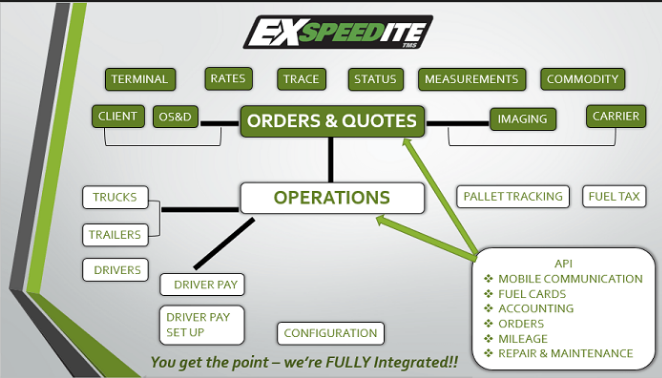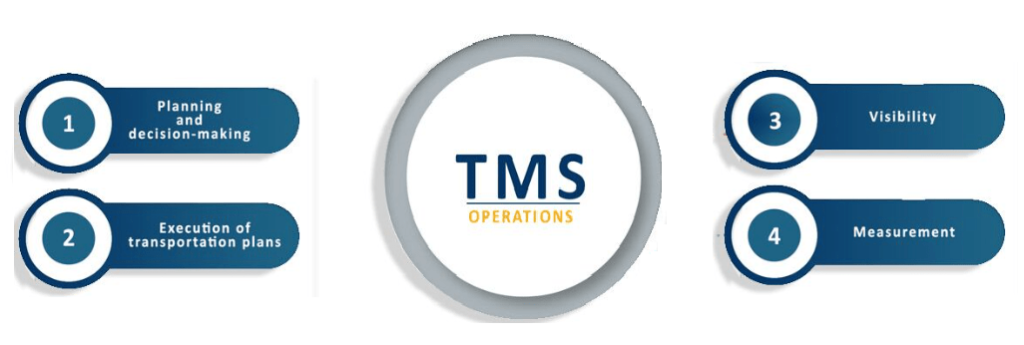Fleet management software does cost analysis of fleets and provides great efficiency and surety in profitability. There are many methods that Fleet management software employs for fleet management cost analysis. Here are some common approaches they might use:
- Total Cost of Ownership (TCO) Analysis: Transportation management system evaluates all costs that are associated with trucking businesses, and operating a fleet, fuel tax, including acquisition, truck maintenance, fuel, insurance, and depreciation. With respect to all factors TMS software provides a comprehensive view of the true cost of running the fleet business.

- Lifecycle Cost Analysis: This involves determining the expenses associated with a vehicle or other asset from purchase to disposal. Fleet management software can save costs by making well-informed judgments on whether to retire or replace vehicles by having a thorough awareness of the costs involved at each step of the life cycle.
Research real-world fleet management efficiency tactics
- Fuel Efficiency Analysis: Fleet management software analyzes fuel consumption patterns across their fleet and brings out the solutions to create opportunities for improving fuel efficiency. This could involve monitoring fuel usage, implementing fuel-saving technologies, or optimizing routes to reduce fuel consumption and costs.
- Maintenance Cost Analysis: Trucking software tracking the maintenance expenses, and identifying the trends and patterns in vehicle breakdowns, repairs, and servicing. This data helps them optimize maintenance schedules, identify potential issues before they escalate, and minimize unexpected repair costs.
- Driver Performance Analysis: Trucking software evaluates driver behavior, salaries and performance to identify opportunities for improving efficiency and reducing costs. In order to encourage safer and more fuel-efficient driving practices, this may entail keeping an eye on bad driving patterns like speeding or prolonged idling and offering drivers feedback and instruction.
- Technology Utilization: Fleet management software leverages fleet management software and telematics systems to gather real-time data on vehicle performance, location, and usage. By analyzing this data, they can identify inefficiencies, optimize routes, and improve overall fleet productivity, leading to cost savings.
- Benchmarking: Fleet management software compares their fleet management costs against industry benchmarks and best practices to identify areas where they can improve cost efficiency. This could involve comparing costs per mile or per vehicle against similar fleets to identify opportunities for cost savings.
How to Manage Fleet Fuel Costs Analysis?
Managing fleet fuel costs is crucial for maintaining profitability and sustainability. To effectively control fuel expenses, fleet managers implement several strategies focused solely on fuel management:
- Real-Time Monitoring: Utilize trucking software to track fuel consumption and vehicle performance in real-time. By monitoring factors like fuel usage, idle time, and route efficiency, fleet managers can identify areas for improvement and take proactive measures to reduce fuel costs.
- Route Optimization: Trucking software offers advanced route planning and that allows fleet managers to plan the most fuel-efficient routes for each trip. By considering factors like traffic patterns, road conditions, and fuel stops, managers can minimize mileage and reduce fuel consumption.
- Driver Performance Monitoring: Trucking software enables fleet managers to monitor driver behavior and performance, including fuel efficiency metrics such as acceleration, braking, and idling. By providing feedback and training to drivers, managers can promote fuel-saving behaviors and improve overall fleet efficiency.
- Fuel Purchase Management: Integrated fuel management features in trucking software enable managers to track fuel purchases, compare prices, and identify opportunities for cost savings. By leveraging bulk purchasing discounts and negotiating with fuel suppliers, managers can secure competitive fuel prices and reduce overall fuel expenses.
- Data Analysis and Reporting: Trucking software provides robust data analysis and reporting capabilities, allowing fleet managers to analyze fuel usage trends, identify inefficiencies, and make data-driven decisions to optimize fuel costs over time.
How TMS SOftware System Analyze teh cost of fleet?
Calculating Total Cost of Fleet Ownership?
Managing fleet costs goes beyond fuel expenses. Fleet managers must also consider other variable and fixed costs to ensure financial stability. Here’s how each component contributes:

- Taxes: Fleet operations incur various taxes, including property taxes on vehicles, sales taxes on purchases, and possibly income taxes. Staying compliant with tax regulations and leveraging tax deductions and credits where applicable can help minimize the tax burden.
- Insurance: Fleet vehicles require insurance coverage for liability, property damage, and other risks. Fleet managers must carefully assess insurance options, negotiate premiums, and implement risk management strategies to mitigate insurance costs.
- Depreciation: Fleet vehicles depreciate over time, impacting their resale value and overall asset value. Fleet managers must accurately calculate and account for depreciation expenses to properly assess the fleet’s financial performance and make informed decisions about vehicle replacement or disposal.
- Licenses and Permits: Fleet operations often require various licenses and permits for vehicle registration, interstate travel, and compliance with regulatory requirements. Managing these licenses and permits efficiently and renewing them on time can help avoid penalties and fines.
- Loans and Lease Payments: Fleet acquisition may involve financing through loans or lease agreements. Fleet managers must manage loan payments or lease obligations effectively to avoid default and ensure financial stability. Evaluating lease versus purchase options and negotiating favorable financing terms can help minimize borrowing costs.
Conclusion: By implementing these fuel-focused strategies and continuously monitoring fuel usage and costs, fleet managers can effectively manage fuel expenses and improve overall fleet efficiency.

